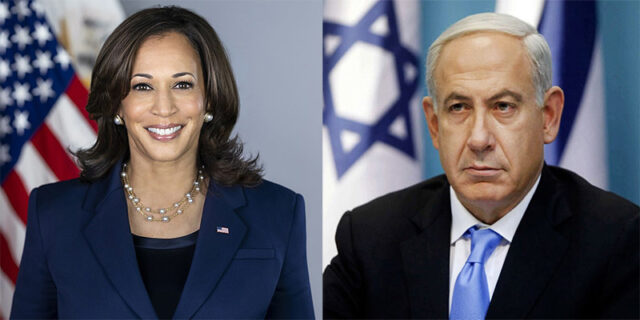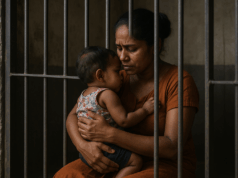By Prof.Kirthi Tennakone
Humans are not united as a species. Divisions based on geography, ethnicity, coloir, religion, opinions and other attributes present everywhere dominate the social and political dynamics of the world.
Nobody knows why this happens: a naïve explanation is that birds of the same feather flock together. A person feels more comfortable when he or she associates with people who look similar and think alike. Intolerances of differences leads to social segregation.
Human communities also polarise. Polarisation is the widening separation of a society into two physically unseparated opposing camps based on some identity or belief. The colour, the language spoken and the religion, the political ideology are examples of the former and latter.
Polarisation differs from division. Unlike in division, the polarised parties oppose or confront each other. However, division can be triggered to ensue polarization.
As inspiringly illustrated in a cartoon of a blog by the American vocational minister, David Servant, titled “The end of political polarisation”, different interpretations of the same thing could lead to polarisation.
Division and polarisation, resulting conflicts, and their subsequent relaxation, influenced social evolution.
The primitive people, segregated into tribes geographically demarcated by streams, mountains and impenetrable forests. They spoke different dialects and followed varying traditions. The encounter between two tribes resulted in a confrontation. Often, two tribes fighting each other coalesce into a larger community.
Frequently, the latency of two ethnicities or religious believers in a community causes polarisation, a trend continuing to be exploited by politicians.
Social systems are intricately complex. Despite divisive and polarising forces, communities have a propensity to amalgamate, with one community capturing another. The emergence of community leaders or rulers facilitated the process. A larger community adapts better to the utilisation of resources using a massive workforce. The largest ancient communities were hydraulic civilisations that required excessive manpower.
Finally, nations, or centrally governed political systems, evolved. Now we have countries on the world map with clearly marked boundaries. The global territorial political landscape today stands relatively stable compared to the situation centuries ago.
Nevertheless, there are divisive and polarising forces between nations. The greatest divide in the world is between the East and the West. And the major polarisation is between the opposing forces of capitalism and socialism. Branding capitalism as right and socialism as left psychologically widened the separation.
What was the primary factor that created the East-West dichotomy? Ancient Eastern societies advanced before their contemporaries in the West. Before 625 BCE, almost all civilizations, either East or West, believed the happenings in nature were governed by the deeds of deities. In that background, they developed empirical technologies and often prayed for the blessings of the gods to succeed in technical endeavors.
The Greek philosopher and mathematician, Thales of Miletus, was the first man to think differently. He said, natural phenomena could be understood by humans via deductive thought without involving deities. Subsequent Greek philosophers, followed Thales, creating science.
As a result of the culture of rational thinking, Greeks debated how people should be ruled, inventing democracy. Greek thought diffused throughout Europe. Science transformed empirical technology. Democratic changes relieved people of oppression.
Unlike Greeks, Easterners did not raise questions about simultaneous equations and theories of how people should be ruled in the marketplace. They continued to follow the old tradition of spiritualism and remained ruled by autocrats, until they were conquered by the West.
Later, Western powers withdrew from colonies in the East, voluntarily due to pressure or revolt. Few turned fully democratic, and others partly or authoritarian. All of them retained and adopted science and technology introduced by the West, but many kept indigenous equivalents and ideas on a higher pedestal.
The failure to assimilate science and technology and democratic values naturally accounts for the weaknesses of the East compared to the West and the continuation of the East-West rift.
Capitalism and socialism are both conceptualisations of the West. The East was indifferent to these ideals, until infiltration from the West.
Capitalism represents the economic system that allows private ownership of property, the production of goods and the delivery of services. The rapid technological advancement of the West beginning in the 18th century promoted capitalism.
The expansion of capitalism created disparity between those who earned excessive wealth at the sacrifice of workers who remained poor. The result was the world’s agitation for socialism.
According to the classical definition, socialism advocates the public ownership of property and the management of production. Socialism is not contradictory to democracy. In a way, a method of democratization of the economy.
Socialism and democracy can coexist.
However, Karl Marx postulated that socialism can only be initially implemented by a dictatorship of people – the so-called dictatorship of the proletariat. The first extreme socialist nation, the Soviet Union, adopted this dictum, restricting freedom. The dictatorship of the proletariat soon reverted virtually to a one-man dictatorship. It is this historical development that polarised socialism and capitalism. Nevertheless, the socialist policies succeeded in the industrialisation of Soviet Union.
The weakness of capitalism is the concentration of wealth among a minority of individuals at the expense of neglecting the welfare of the majority. The resource limitation prohibits making every citizen of a nation adequately rich.
The weakness of socialism is the state ownership of property and production of goods. Humans desire to own property and production needs competitiveness to innovate quality items and novel ideas.
The problem of democracy is the fault of its implementation in choosing representatives of the people. The party system makes society susceptible to polarisation. A party could raise emotional issues, instigate violence or commit crime to induce polarisation in its favour. The representatives, once elected, could make decisions or frame the legislature biased to their advantage. There is no mechanism to prevent corrupt and devious candidates seeking election as representatives.
Would it be possible to compromise capitalism and socialism within a framework of democracy and cure the ills of both? Democratic socialism evolved as an answer to this question. In general, democratic socialism commits to providing social welfare without rigidly restricting private enterprise but encouraging it, subject proportionately heavy taxation.
Recently, Bernie Sanders, United States Senator for the State of Vermont, a proponent of democratic socialism, wrote:
“We need to address the unprecedented level of income and wealth inequality and demand that the wealthy and large corporations start paying the fair share of taxes. Working people should not be paying an effective tax rate higher than one percent”
The World Population Review (2024) classifies 20 countries, including Sri Lanka, as democratic socialist. The success of democratic socialism in Nordic countries is often highlighted.
Over the past 4-5 decades, there has been a trend world-wide, socialist countries to accommodate capitalist policies, with capitalist countries (despite sporadic bursts of right- wing impulses) inclining towards socialist reforms.
Theoretically, democratic socialism is more stable, because it dilutes the polarisation between rich and poor.
Just after independence, Sri Lanka was exemplary in successfully implementing free education, health care and initiating developmental projects in agriculture and industry. And stood as a leading progressive nation in Asia. Later, despite its declaration as a Democratic Socialist Republic, the country moved down the economic cliff.
The cause is not a fault of capitalism or socialism, but a craft of corrupt opportunists who instigated divisions and polarisations and manipulated democratic procedures, for self-interest.








